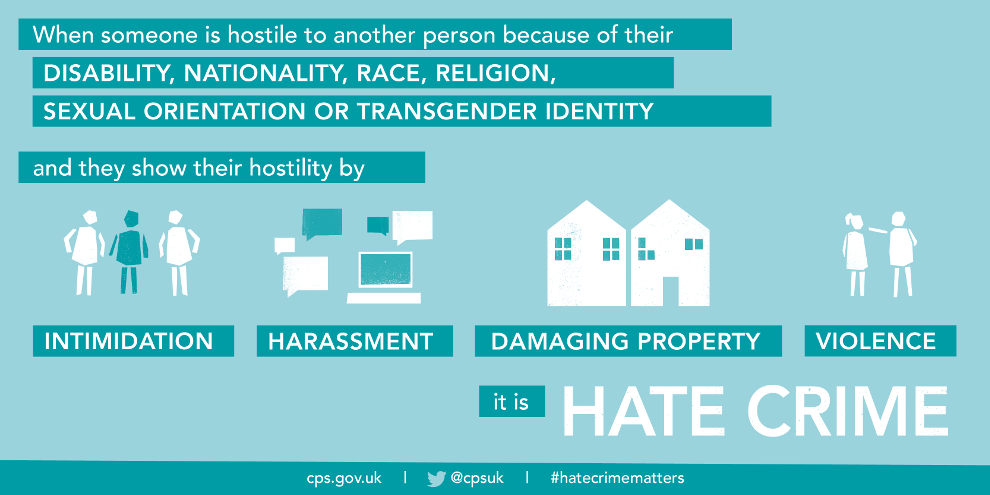https://www.quora.com/Why-do-we-nee...opposed-to-a-someone-they-might-identify-with
The way for a person to understand this, is to examine cases that occurred before Hate Crime legislation came into being.
The difficulty was that certain miscreants would take it on themselves to attack or beat other people because of public opinion, peer pressure, or cultural traditions.
So whites would attack blacks, blacks against whites, lots of people against Italians, Irish, Chinese, or Jews. Or it would be against gays. Or Christians or non-Christians. Or rich vs poor, poor against rich (based on car or clothing). Or even on ideologies such as Pro-choice or “lifers”.
The points that made Hate Crime so terrible is that it wasn’t directed at any one person (eg someone who had offended someone or over personal gain), it was petty much randomly dealt out to any innocent person minding their own business and for no other reason that the attacker
s (note usually plural!) thought they belonged to the hated group. What’s more, the attacker seldom had good reason to be aggressive towards the group in question! Sometimes it was over perception of lost opportunities, but more often it was just personal frustration, imagined persecution, cultural propaganda, In such cases it made it much harder to identify criminal intent, because there was no forensic reason to attack the other person except for a moment of opportunity to do so.
To make it worse, Hate Crimes were often
celebrated by the community of the attacker. They would not feel remorse over what they had done to another, they often felt elation and a sense of service and duty - and their community often recognised and rewarded their service!
Thus it was necessary to put in place legislation to recognise such attacks were, as a civil society, unacceptable. That the groups involved were equal citizens and entitled to equal protection and right to security under law. This means that “mens rea” (“guilty mind” , ie the intent to do an illegal action) was now established in law - previously, guilty mind was hard to prove in court, and only in extremes would a jury feel vindicated in passing down guilty verdicts for cases which they considered the attacker might have been considered provoke or not of full sanity - by fixing the “Hate Crime” as “a thing” then juries could easily identify the concept and label it, and would feel secure in classifying the act as one of guilt in a “hate” aspect.
It also served a purpose in sending a solid message to the society and these hate filled communities, that “hate” against a group is a
criminal act. You could have freedom of speech to rant all you like amongst your peers, but if you then violated someone elses rights because of that hate, then “Hate Crime laws” were very clear that this was a very bad thing, and that extra punishment
would be awarded for following such passions/planning. It is hoped that through removal of celebration, and recognition of the criminal anti-social act, that eventually serious hate crime will be removed from society - and that such social pressures will find better ways of resolving the real issues rather than just take the sickening anger and frustration and fear out on innocent (and often really nice and decent) people (because the most stupid part of hate crimes, is even when the hate might be justified, it is never the real justified target that bears the damage of the attack).






